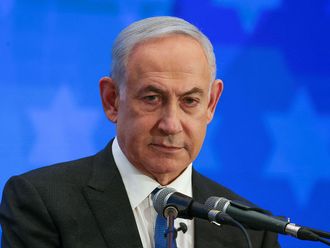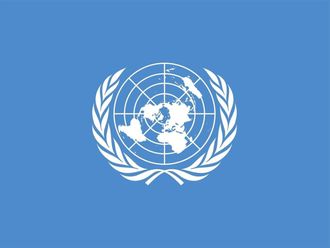Conspiracy theorists and Palestinian apologists will claim that Israeli intelligence set up Rafik Al Hussaini, the old chief of staff of the Office of Palestinian National Authority President Mahmoud Abbas. Such claims would support making the Palestinian West Bank government lo ok even more incompetent and dependent than it already is — something Israel hardly needs to do.
Israel has a short-term and sordid interest to ridicule the Palestinians. Gaza is portrayed pathetically as being filled with suicidal mortar-launching extremists — a perfect reason to perpetuate the current state of indefinite war. In the West Bank, the un-elected Palestinian National Authority is painted as painfully unable to rule their people — a perfect reason to continue the military occupation to maintain order.
As repugnant as it is, the Palestinian sex scandal is simply a distraction from the real problem: Israel refuses to end the occupation. Scandals are part of politics, but this one is revealing of the Israeli media-security complex.
Under orders from Abbas, Fahmi Shabaneh, a professional lawyer, monitored Palestinian officials for corruption charges. The Al Hussaini case is only the tip of the iceberg that surfaced in 2008. Shabaneh claims to have dozens of files of previous cases during the Arafat era that the Abbas government said it would address. Let's see them, Shabaneh, let's see them all!
The level of cronyism is well-known among Palestinians first and foremost, who voted out of frustration and fury for a "change" and "clean" government, promised by Hamas during its landslide legislative election victory in January 2006.
As a way to denounce Palestinian corruption, Shabaneh gave the Al Hussaini tape to the Israeli media — for greater impact. It hardly matters who Al Hussaini is: the tape depicts a fundamental problem with Palestinian politics and dependence on Israeli media for international exposure. The tape epitomises the fact that Israel dominates all dimensions of Palestine.
Far from uncommon
While this incident will benefit Israel, there has never been a shortage of scandals for that country's media to thrive on. Three cases in particular come to mind:
Moshe Katsav, former Israeli president, was the subject of a sex scandal involving an Israeli soldier in 2006. Katsav also supposedly had secret bank accounts to receive payoffs in return for presidential pardons.
Ariel Sharon, former prime minister, allegedly allowed illegal fund-raising to take place during his party campaign in 1999 to be Likud leader. Sharon's son, Gilad, was also later involved in a development project fraud in Greece.
Ehud Olmert, former primer minister, was involved in a shameless scandal over embezzlement charges that he nimbly denied until it was proven that he had received funds for political purposes and had profited from travel expenses. Olmert was by all accounts a mediocre politician, on the same level as Peres.
None of these seem to matter that much to the Israelis, who continue to live in a secluded manner, cut off from the rest of the Middle East as well as their immediate subjects, the Palestinians.
Beneath the Israeli media-security complex, let's hope the Palestinians react and do not fall into the complacent Israeli resignation of letting political leadership continue unabated, as if abusing power were the most banal thing to do.
This sex scandal, whether fabricated by Israel or not, may be a blessing in disguise for the Palestinians: If the Abbas government is able to channel the international media in the right direction, then the entire Palestinian political apparatus could come out looking much better than it has in years — free of Al Hussaini and his ilk.
In the twilight of Abbas' time as president, he must lead and confront the old guard of Fatah. Despite the military occupation, the economic dependence, the daily humiliation, the humanitarian abuses … if he can show a sign of morality and honesty that will leave an impression for generations to come and set an example above the insolent Israeli policies and the pathetic Palestinian factional fighting.
If he can do this, he may win some points in favour of the general Palestinian public, and he may come closer to reconciling with his Hamas brethren. Some would say it's already too late, but it's worth trying — he loses absolutely nothing now.
Stuart Reigeluth is editor of Revolve.










